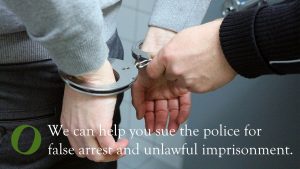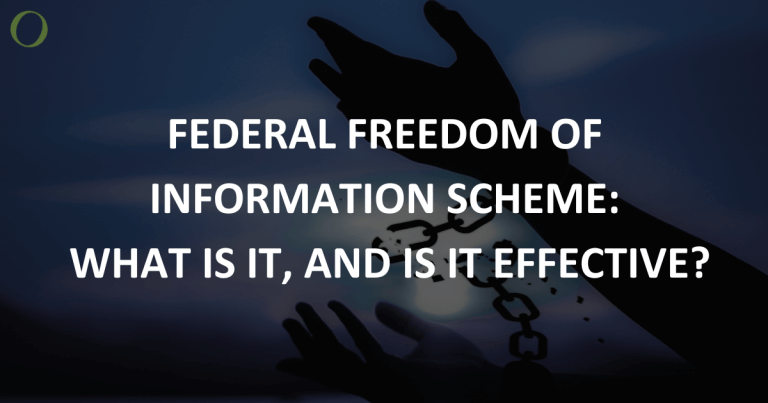The scenario is a simple one. You’ve just finished a long, hard day at work or school and begin your journey home. Suddenly, your normal journey is disrupted by a swarm of NSW Police encircling the train station turnstile you’re about to walk through. Two police officers stop you and subject you to an invasive and humiliating strip-search, citing a law you don’t recognise or understand. This scenario is occurring to children and young persons as young as 10 years old.
Strip searches particularly affecting young people
Strip-searching is an increasingly common occurrence in a majority of Sydney’s train stations and music festivals. Disturbingly, the prevalence of these strip searches is having a growing impact upon young people in Australia. In a recent article published on 4 June 2019 by The Sydney Morning Herald, an account is given by a 20-year-old Sydney woman who found that a strip-search conducted upon her by police forced her to re-live the trauma of a previous sexual assault.
The article revealed that the number of 18 to 25 year olds who have been subjected to strip searches has risen faster than all other age groups, shooting up by 41.5% between 2017-2018. Following the questions put to Parliament by NSW Greens MP David Shoebridge, separate data published has revealed that two in three searches during 2017-2018 turned up nothing.
Redfern Legal Centre launches “Safe and Sound” campaign
Redfern Legal Centre (RLC) has launched a campaign called “Safe and Sound” in order to advocate for change to NSW strip-search laws. The RLC has revealed that nearly 300 minors have been strip searched over the past three years with the youngest aged 10 years old. The Law Enforcement (Powers and Responsibilities) Act 2002 (LEPRA) provides that adult police officers can strip-search people as young as 10 years old.
Pursuant to s33 of the LEPRA Regulation 2016, vulnerable people are required to have a support person present during a search, but it remains unclear whether this is always adhered to. It is disconcerting that a child can be required to remove their clothes in front of two adult police officers (sometimes of the opposite gender) in an unfamiliar environment. These procedures also impact negatively upon those who have suffered from child sexual abuse, assault or domestic violence and can result in the re-traumatisation of young victims.
Strip search permissible circumstances
As previously stated in our earlier blog on strip searches, sections 31, 32, 33, 34, 34A and Part 15 of LEPRA govern the use of strip searching individuals. These provisions state that police must suspect on “reasonable grounds” that a strip search is necessary. The provisions point to the “seriousness” and “urgency” of the circumstances required to invoke a strip search. A “reasonable suspicion” must therefore be more than a mere possibility.
If these criteria haven’t been adhered to, it’s highly likely that the search can be proven unlawful, which can have important implications for clients facing criminal charges. O’Brien Criminal and Civil Solicitors have a wealth of experience advising and representing clients facing charges where evidence has been obtained as a result of an unlawful strip search. Such evidence may be inadmissible in relation to charges for possess prohibited drug, custody of knife, goods in custody, and others.
Can I sue police after being strip searched?
O’Brien Criminal and Civil Solicitors have represented many clients who have been subjected to unlawful and unjustified strip-searches, and are seeking compensation for the damage they have suffered. We have successfully obtained compensation for clients who have been the victim of police misconduct, and have been affected by officers acting outside the scope of their duty. We regularly pursue claims for false imprisonment, assault and battery arising out of unlawful strip searches. We believe that these claims are important to help individual clients who have been through a distressing experience, and to hold the police accountable for their conduct.
Aboriginal people disproportionately strip searched
A recent draft report, “Rethinking Strip Searches by Police” by Dr Michael Grewcock and Dr Vicki Sentas of UNSW, explores the “repeated and disproportionate use” of highly intrusive strip searches impacting upon young Aboriginal people. The findings highlight that strip searches upon children and young persons, including those who have suffered early trauma and abuse, can also deeply impact upon the identity formation of a child.
No strip search definition in statutes
In a follow-up article on 23 June 2019 published by SMH, “NSW Police admits breaching strip-search laws” an internal report from the force’s Lessons Learned Unit (LLU) stated that there is no clear definition of a “strip-search” in state legislation, leaving individual officers to interpret the law for themselves.
Measures needed to protect young from strip searches
The inconsistent application of these powers creates a dangerous precedent in victimising NSW youth, highlighting the urgency to implement stronger measures to protect young persons from continuous arbitrary interference by the state and the incorrect uses of LEPRA. O’Brien Criminal Civil Solicitors are committed to representing individuals who have been unlawfully strip-searched, and to continue to advocate for their privacy, dignity and bodily integrity.

-
Peter O'Brienhttps://obriensolicitors.com.au/author/peterob/
-
Peter O'Brienhttps://obriensolicitors.com.au/author/peterob/
-
Peter O'Brienhttps://obriensolicitors.com.au/author/peterob/
-
Peter O'Brienhttps://obriensolicitors.com.au/author/peterob/






